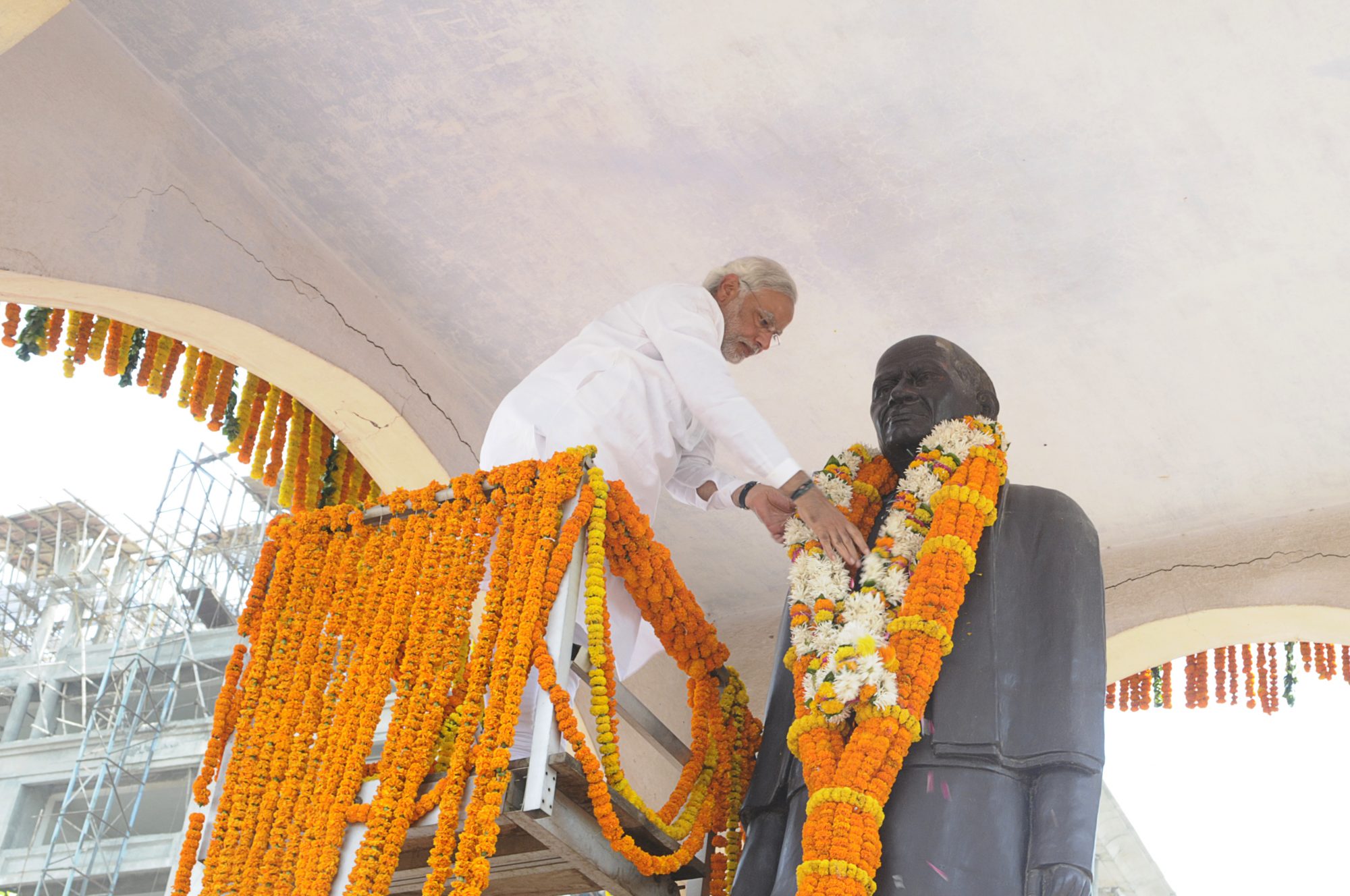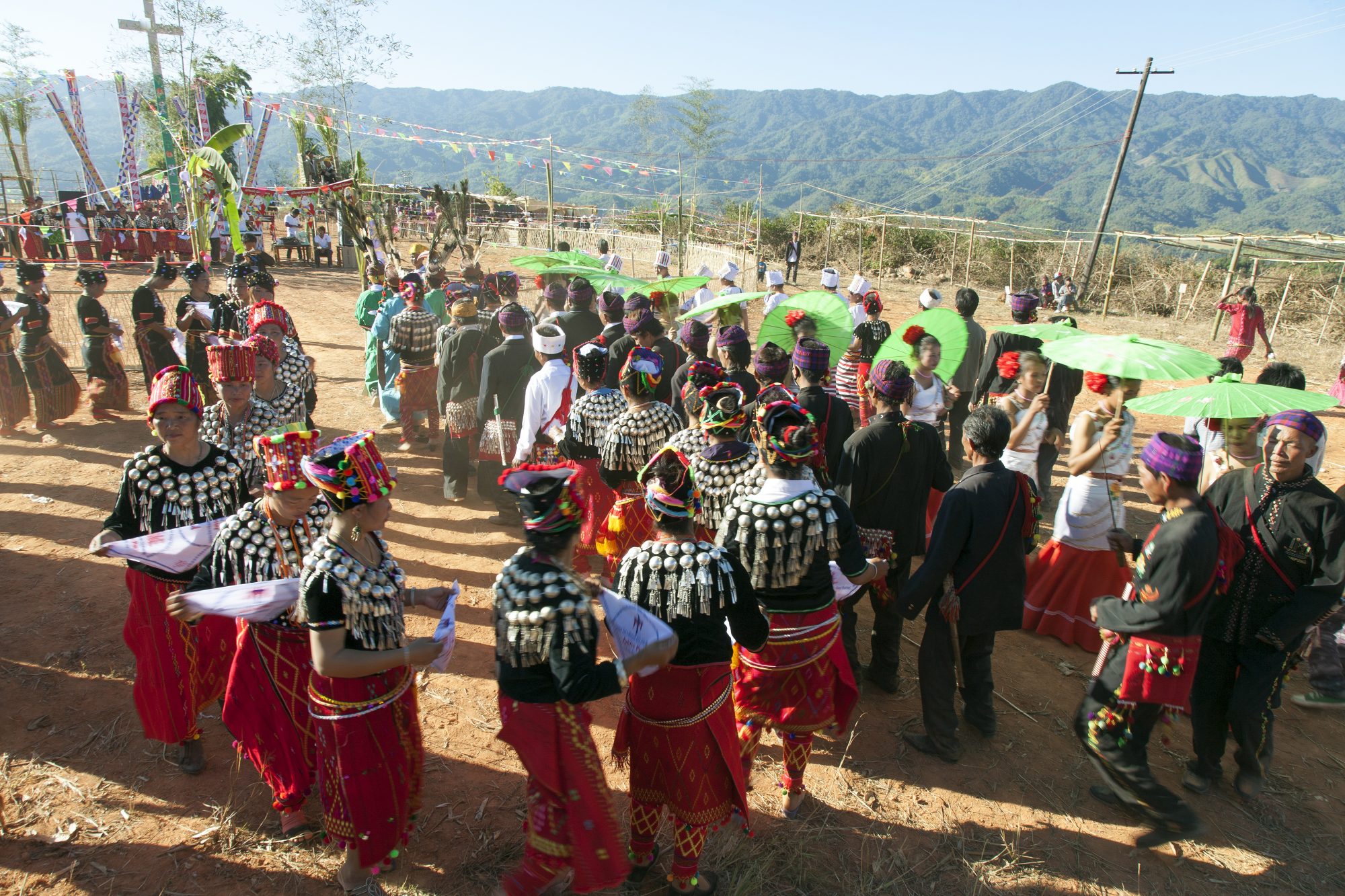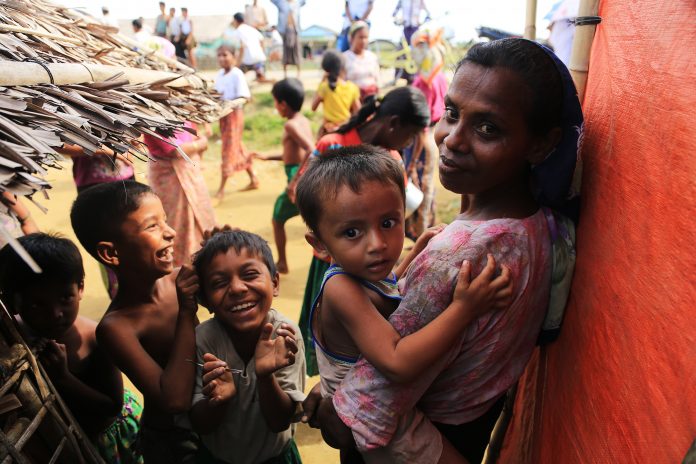In 2019, there are over 600,000 Rohingya survivors in Bangladesh, and we are left wondering: will the Myanmar government take responsibility? What will happen to these people?
In February 2019, UK aid is supporting an early warning system in Cox’s Bazaar, Bangladesh, which detects disease outbreaks and prompts targeted, rapid responses by health workers.
The life-saving early warning system gathers information on new disease cases across 168 health centres in Cox’s Bazaar and uses an innovative mobile app to allow experts to identify and track potentially deadly outbreaks – helping to protect the more than one million Rohingya people living there.
What did the UK send to Cox’s Bazaar?
Supported by the Department for International Development (DFID), the system is currently being used to track and respond to an outbreak of chicken pox in the camps.
More than 4,000 people are believed to have contracted the virus, almost half of whom are under five years old. The early warning system has helped the World Health Organisation (WHO) experts in Cox’s Bazaar to provide health advice and medicine, focusing on the most vulnerable, complicated cases.
International Development Secetary Penny Mordaunt said:
“Aid isn’t just about reacting to a crisis after the fact; we are using technology and intelligence to prevent and respond to problems before they become disasters.
By responding at the first stage of a disease outbreak, rather than when it is already an epidemic, we will save more lives, more efficiently.
we are using technology and intelligence to prevent and respond to problems before they become disasters.
Chicken pox is familiar to children and families across the world, but it is significantly worse in a refugee camp. That is why UK aid is helping the most vulnerable and is prepared to respond to new outbreaks in the future.”
Following an outbreak of diphtheria in the camps in December 2018, the UK aid funded Emergency Medical Team (EMT), made up of the UK’s top medical professionals, was deployed to Cox’s Bazaar to help stem the spread of this deadly disease.
While chicken pox is generally low risk, there is some risk of complications from secondary infections like pneumonia, or to pregnant women. WHO medical staff are distributing medicine for the worst symptoms and monitoring complicated cases.
Why are the Rohingya people in Cox’s Bazaar?
Over half a million Rohingya have fled to neighbouring Bangladesh to escape killings, arson, and other mass atrocities. Bangladesh’s Cox Bazaar is a huge neighbouring district to the Rakhine State where the majority Muslim minority resided in Myanmar.
Amnesty International suggest that 700,000 individuals have been displaced, with potentially higher numbers which are not currently documented.
The geographical route for escaping took the Rohingya people straight to Cox’s Bazaar, where the Bangladesh government have created a camp for them to reside.
The Rohingya, effectively denied citizenship under Burmese law, have faced decades of repression and discrimination. About 120,000 remain internally displaced from violent events in 2012 and 2016, which means they reside in Myanmar but have no real home and therefore no security.
Every aspect of their lives was severely restricted in Rakhine State; in some areas they could only travel by waterways, and only to other Muslim villages.
Amnesty International spoke to a Rohingya villager living in central Rakhine State who said, ‘We cannot use the road, we can go near it… but we cannot walk on it.’
‘We cannot use the road, we can go near it… but we cannot walk on it.’
To date more than 615,000 Rohingya have fled to neighbouring Bangladesh. It remains unclear if, and under what conditions, those who want to will be able to return to Myanmar.
What is Myanmar doing about it?
The current Myanmar government frames the systematic discrimination and segregation of Rohingya Muslims as one of intercommunity tension. They have refused access to truth-finding international commissions, despite increasing calls by the UN and human rights organisations for answers to the accusations of genocide.
Aung San Suu Kyi has generally dismissed the well-documented State violence.
She recently met with US Vice President Pence at the Association of Southeast Asian Nations (ASEAN) summit, in November 2018. He asked her to release two Reuters journalists, Wa Lone, aged 32, and Kyaw Soe Oo, aged 28. These journalists are facing a seven-year sentence for allegedly spilling state secrets by reporting the killing of 10 Rohingya men.
Pence asked her for a pardon for these individuals and was refused. Aung San Suu Kyi insisted that a colonial-era law on State secrets had been violated – she refused to free these journalists.
The control over the military by the government is questionable, but the ongoing refusal by either body of Myanmar to acknowledge their responsibility over the 700,000 displaced Rohingya.
In Myanmar they are still not recognised as a people, denied their humanity in the most basic way, as they are not considered to be Nationals due to the 1982 Citizenship Law which denies their identity – dismissively referring to them as ‘foreigners’ or ‘Bengalis’, despite their significant presence in Rakhine State and cultural history within Myanmar.
Aung San Suu Kyi insisted that a colonial-era law on State secrets had been violated – she refused to free the journalists
The situation continues to play out, with Bangladesh accepting the immediate responsibility for Rohingya refugees at the moment, in coalition with multiple countries and the UN.
What are neighbouring countries doing?
Since the UK, and a number of countries in the international community, are sending aid packages and supporting sanctions through global human rights mechanisms, we have to assess how significantly powerful neighbouring countries are helping out to stop this ongoing genocide. According to this report, this is how the region is responding.
India
India is currently helping with aid in a reluctant fashion. The State has angered Bangladesh in the last three years by showing strong support for the Myanmar government, due to some of their economic and strategic ambitions being tied with the will of Myanmar. The feeling in Bangladesh is that India are helping to avoid an influx of refugees to their own State, particularly the North-East which borders the Cox’s Bazaar district of Bangladesh.

In September 2017 on an official visit, Indian Prime Minister Narendra Modi ignored the Rakhine Rohingya crisis, vaguely mentioning ‘extremist violence’ there: implying that he stands with Myanmar’s explanations of internal violence amongst the Rohingya.
He further expressed solidarity with the Myanmar government’s fight against terrorism, which is the legally stated reason for the violence within the Rakhine state commited by the military against the Rohingya.
China
Like India, China has geopolitical interests in Myanmar.
China is openly very supportive of Myanmar, as it is funding the Kyauk Phyu port. This port would be the starting point of an oil-gas pipeline and road link from the Bay of Bengal, running through Myanmar to the Yunnan province.
China’s massive Belt and Road development is dependent on good relations with Myanmar. China was also isolated by a shift to the West. Yet, Western critique about the Rohingya has opened a window for China to remove itself from isolation and establish an even closer tie to Myanmar. In March 2017, Beijing even helped stop the introduction of a UN security Council resolution against Myanmar.

©Erinpackardphotography
Currently, China is asking for Myanmar’s blessing to execute the Myitsone Dam Hydel project, which would considerably damage the ecology and livelihood of the Kachin region. The power produced would be used in China’s Yunnan.
In addition, 25 insurgent groups operate in Myanmar with 15 who are armed insurgents – the most notorious of these is the United Wa State Army (UWSA), which operates from China.
There is no significant aid being sent to Cox’s Bazaar for the Rohingya by China, but Myanmar is becoming dangerously dependent on China.
Where will the Rohingya go after Cox’s Bazaar?
Option 1: Thengar Char
The Government of Bangladesh have heard concerns from the native population in Cox’s Bazaar about economy and security. A potential destination for the Rohingya refugees has been discussed: Thengar Char, an uninhabited island off the coast of the Noakhili district of Bangladesh.
The island emerged from the sea 11 years ago, lacking basic facilies and the right climate for agricultural production. It is so remote that it can only be reached by a two-hour boat journey, meaning the location is undesirable, isolated and quite worrying to human rights groups.
Option 2: Safe zones in Myanmar
A second option being proposed by the Government of Bangladesh is to establish safe zones within Myanmar, enabling the refugees to return to that country. According to Bangladeshi media reports, Dhaka wants India, Germany, the UN and the International Committee of the Red Cross to set up this zone.
This proposal has been met with a lot of criticism, as it is implausible to make a protected zone within the borders of Myanmar. Similarly, the ‘protected zones’ in Sri Lanka became places for killing: the Liberation Tigers of Tamil Eelam refused to let civilians leave and the military shelled the areas, ending the lives of the majority.
‘protected zones’ in Sri Lanka became places for killing: the Liberation Tigers of Tamil Eelam refused to let civilians leave and the military shelled the areas
In addition, re-sending refugees to the country of their horrors violates the international law of non-refoulement, which declares forced return to a place of danger illegal for all countries who recieve refugees.
Since the Bangladesh government would be unable to determine 100% safety, the principle of non-refoulement would be violated.
Option 3: Maintain a presence in Cox’s Bazaar and other host communities
The 2019 Joint Response Plan due to be put forward by UNHCR requests a fundraising of £733 million for the Rohingya refugees who need help – of which there are 1.3 million at the moment of writing in February, 2019. This money would help establish functioning communities and fight economic insecurity in the region.
Ahead of the unveiling of this plan to the world, Angelina Jolie, the special UNHCR envoy, has been visiting Cox’s Bazaar and meeting with the leadership of Bangladesh, to drum up awareness and intent for global aid to the Rohingya. She said:
“The people responsible for human rights violations must be held accountable for their action.
I urge the Myanmar authorities to show the genuine commitment needed to end the cycle of violence and displacement and improve the condition of all communities in Rakhine state including the Rohingya.”





![Europe’s housing crisis: A fundamental social right under pressure Run-down appartment building in southeast Europe set before a moody evening sky. High dynamic range photo. Please see my related collections... [url=search/lightbox/7431206][img]http://i161.photobucket.com/albums/t218/dave9296/Lightbox_Vetta.jpg[/img][/url]](https://www.openaccessgovernment.org/wp-content/uploads/2025/04/iStock-108309610-218x150.jpg)





